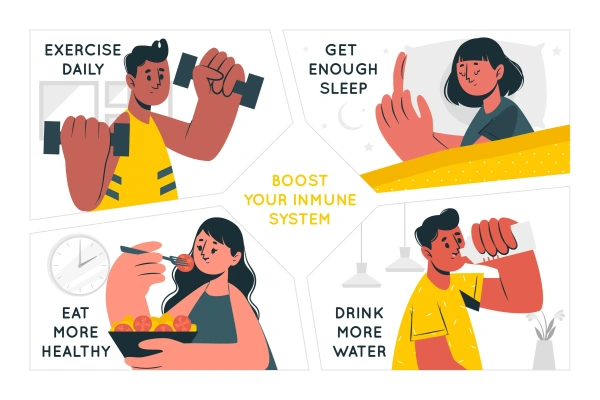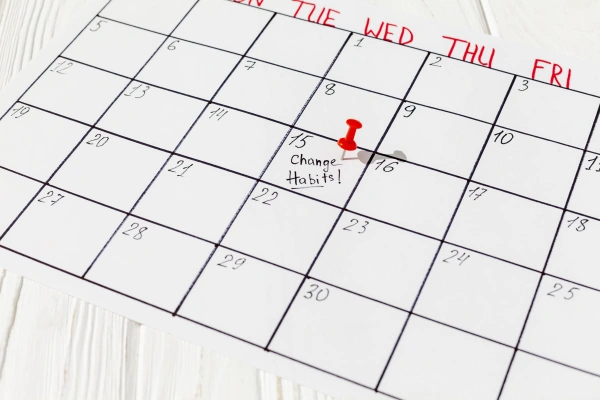Micro habits are minor components of a big goal.
Micro, a word you know so well to mean minuscule, mini, minute. It is easy to mistake micro for unimportant.
Nobody admits to thinking small. It is just a way to break down goals or tasks into smaller, more digestible parts.
Another error you can make is to think because we call it micro, you can skip it, and heaven will not fall. Or nothing will happen.
You can sometimes think the rewards lie in thinking big and neglecting small things. But alas, that is folly and could lead to slower growth and under accomplishment.

Even the minor changes are not as easy as we would like to think because we think we will see behavioural or physical changes quickly. A good example of expecting changes quickly is going to the gym for two days and expecting toned apps instantly.
Micro habits are so small. You don’t think of them when counting habits. You may think, for instance, that reading for one hour daily is a micro habit. Wrong! A micro habit can be as small as meditating for 30 seconds daily or reading only a paragraph per day.
A micro habit is one you can perform with as little effort as possible.
How Do You Stay Consistent With Your Micro Habits?
Measure! There is a saying that what gets measured gets done. You can create a to-do list and indicate what gets done daily by indicating a yes or no.
If you see enough YESes, you can naturally increase your goal, but don’t jump too high. If you see many NOs, you know you are making very little effort and find ways to stay focused.
Accountability Partnerships
An accountability partner is a human alarm clock, a kind but firm one too.
The job of your accountability partner is to aid you in staying steady on a goal.
Now let us talk about seven micro habits that will help you achieve your goals
1. Prioritize Sleep Times and Wake Time
One person’s sleep requirements may defer from another, but most healthy adults need seven to nine hours of sleep per night to function at their best.

In the past, sleep was for the lazy. People took pride in staying awake many nights.
But now we know that you can time and track your tasks, schedule actions accurately, and you don’t spend nights and day working, pretending you are chasing your goals but getting nowhere.
2. Consume More Uplifting Content, Positive Ideas and Quotes
This micro habit of taking advantage of the internet and all the unsolicited advice you can access is a micro habit that can help you achieve your goals.
Quotes are powerful. They are words that and can calm you or invigorate your spirit. Follow inspiring people on social media.

You can learn a lot about failure and how they overcame it and get on top of their game.
Incorporate the right sleep time habits that should include consuming helpful, uplifting content.
3. Manage Impulse
Impulse purchases are unplanned purchases made just right before the payment. The trouble with these impulse purchases, especially ones outside your financial limits, can lead to buyer remorse, anxiety, and self-doubt.
Most impulse buyers berate themselves for lack of self-discipline. Self-judgment does not help you achieve your goal.

The habit of waiting is simple: when you find the things you feel compelled to buy, practice waiting for a few days. If you still feel strongly about the purchase, you can no longer term it an impulse purchase.
But if not, you would have won a significant victory between your feelings and the right financial habits.
4. Stay Away From the Phone
Phones are an increasing source of distraction, though they ensure we stay connected when use is uncontrolled. You can find you spend all your time scrolling through social networks and neglect to do the things you planned to do daily.
Most people leave their phones in the car when they get home or keep it in another room.
A very effective way to manage your phone impeding your goals is to deactivate notifications from social media apps and email notifications.
5. Train your Mind with Behavior Change
To do this, you may have to make small behaviour changes. Behaviour actions are great micro habits that can propel you towards achieving your goals and succeeding.

If you want to exercise more, you can keep your exercise wear on a chair in your room where it’s the first thing you’ll see in the morning when you wake up or can leave your running shoes at the door, so it’s the first thing you see as you take off your work shoes.
You can also stop drinking by replacing the drinks in your fridge with water. By physically doing the things you want to do, your mind will have no choice but to follow.
6. Stop Self-Rejecting
Many people fail to achieve goals because they don’t think they have what it takes to achieve their goals.
They neglect to seek mentorship or acquaintanceships because, deep down, they don’t feel they are worthy.
They will not send emails to prospects because they interpreted networking actions as grovelling.
They are afraid of publishing that article because they do not feel good enough.
They self reject, and this leads to never really making any valuable effort to achieve growth.
To stop this, make the micro habit of replacing self-doubting thoughts with positive ones
7. Do Not Think Too Much About Your Shortcomings
At the root of our success or failure are the questions we ask ourselves: why do I give up?
Why do my business ideas plateau before I even take off?
Why do I procrastinate so much? Why is it this way?

People who struggle with procrastination and self-doubt often want to know why.
Why they can’t do what they want/need to do, why they can’t wake up early, exercise, whatever.
It’s unhelpful, and all that overthinking just turns into self-criticism. Sometimes there’s an obvious story about why you can’t move forward, and sometimes there’s not.
It’s better to accept yourself and do the best you can to decide how you want to act from this point on and go from there.
To overcome bad habits, we have to replace them with good ones.
A good habit is to do the best you can, define success on your terms, and be positive.
8. Exercise
Exercise is one of the most ordinary good habits. Its advantages are easy to think up.
You need to exercise your body to stay fit and healthy, for mental clarity, to release good hormones.

Yet sticking to an exercise routine remains challenging.
Whatever your goals are exercise-wise, stay focused, be active, track every little gain, and don’t give up.
You don’t have to exercise for long minutes every day, it could be as little as 3 minutes, in the beginning, completely keep it going and this will translate to success in your other actions.
9. Prepare Your Next Day Before Going to Sleep
Create a checklist of things you want to get done or execute for the next day a few hours before bed, and then review it shortly before the end of the day.
Don’t load the list with heavy goals or complex stuff. Start with a simple list. It shouldn’t take over 5 minutes. You can come up with as little as five things the next day.

When you prepare for your next day, this is what happens; While you sleep, your subconscious begins work on these things you arranged to do before going to bed.
When you nourish your mind with things you want to accomplish for the next day, It will ‘get you ready’ to do them when you awake.
10. Challenge Your Mind to Feel Good, Recognize the Good in the World Around You
We’re constantly being encouraged to “experience” our feelings. I’m all for that. But we think only of negative feelings. We don’t allow ourselves acknowledging positive emotion in ordinary circumstances. We reserve it for the heroic moments.
The good news is we can train ourselves to experience certain emotions.
Consequently, when you feel worthy, enjoy it. Observe what you’re doing when you feel that way.
Cultivate the habit of naming what you’re experiencing; is it joy, fun, happiness, satisfaction, contentment?
Because it helps to cement it. Appreciating you feel good causes you to feel even better.
Conclusion
Micro habits are the building block to success.
Good habits help you perform better, and when you smash your goals, the anxious thoughts or feelings associated with not achieving the things you set to do daily.
Implement these micro habits and see your big goals get achieved one baby step at a time.
About the Author
Eugen Spivak is a multi-award-winning author, business strategist, and a business coach. Eugen is the founder of the Canadian Institute of International Business, an organization focused on a better way to learn business!
Study With Us!
We offer practical courses in various areas of business. Our instructors have at least 10 years of practical experience in their fields.


